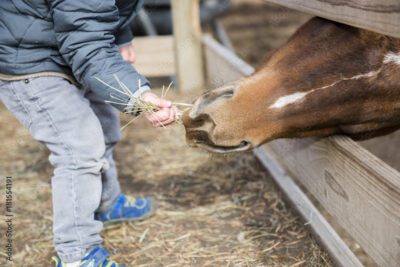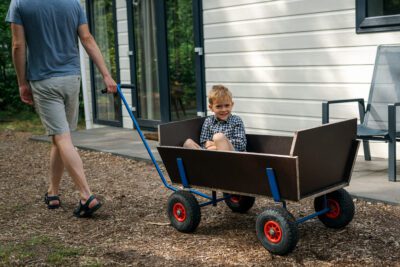By Christine Denise
Autism Mom and Contributing Writer for As You Are, a virtual clinic dramatically increasing access to early autism diagnostic services through the use of exclusively telehealth appointments
I was 33 years old when I learned my youngest son was born with special needs.
His twin older brothers were 3.
For 33 years, I knew very little about what it was like to parent a child with special needs, or what special needs like autism even really were.
My twin sons, however, will have known about it for nearly their entire lives.
As my husband and I continue to navigate this world, we have found our neurotypical children to be a wealth of knowledge.
Little Kids Teach Us Big Things
One of the greatest lessons our neurotypical children have taught us is to always let our son with autism try new things – even if we are convinced it will be too overwhelming for him, or too high-level for him.
His brothers basically have their little brother try new things and learn if he can’t do them by trial and error – unlike the approach my husband and I take.
We predict what may work or not work for our son, whereas his siblings go into situations with their brother assuming he can adapt, rather than avoiding them all together.
Putting Lessons into Practice
For example, my husband and I assumed our son with autism would never catch a ball. Too much coordination.
He’ll get hurt if it hits his glasses.
His brothers just started gently passing him their basketballs, soccer balls, baseballs and any ball they could get ahold of until they found one that worked for him.
They worked together, one of them guiding their younger brother’s arms to catch the ball while the other one tossed it.
They took him fishing with them, baited the hook for him and held the pole with hand-over-hand instruction the entire time.
And they’re okay when their brother lets them know it’s not for him by trying to elope from the moment or squawking as we like to call it because he can’t form the words to say he’s over it.
But at least they tried it.
They will take him down a water slide with them – even though my husband and I would never think he would enjoy it.
Simply put, I believe neurotypical siblings have typical expectations for their siblings with special needs.
As adults, we have so much less life experience with children with special needs, let alone our own.
Their siblings, however, are still in their formative years – unjaded by their own assumptions of what a special needs person can or can’t do.
His Brothers are His Advocates
Watching them teach their peers about their brother is also something to behold.
Countless times I have seen the faces of their friends look astonished when our neurotypical sons play with their brother who has autism – especially when they rough house with him.
It’s as if their friends thought our son with autism might break when his older brothers scoop him up for a tickle session or to wrestle with him – letting him win of course.
In those moments, they’re teaching others who don’t have siblings with autism how typical some things are at home.
They use his iPad to communicate with him, help their brother get dressed and help him eat as if they’ve done it all their lives because they have, and it comes naturally to them.
Our neurotypical children have also developed their own strategies for coping with their brother’s autism.
One of my boys has found repetitively telling his brother he’s not mad at him when he’s melting down seems to help put him at ease.
Our other neurotypical son has learned his brother with autism absolutely loves being thrown into a giant bean bag, so when he’s struggling because he can’t communicate, he will take his brother to the bean bag and divert him.
We have a lot to learn from our neurotypical children as we raise our children with autism.
Be sure to pay attention.
Do you have questions about your child’s development? The team at As You Are provides useful autism screening and diagnostic evaluations for kids 16 months to 10 years old via telehealth appointments.
Disclaimer: I am not a medical professional. This is a sponsored blog post, but all opinions are my own.


















